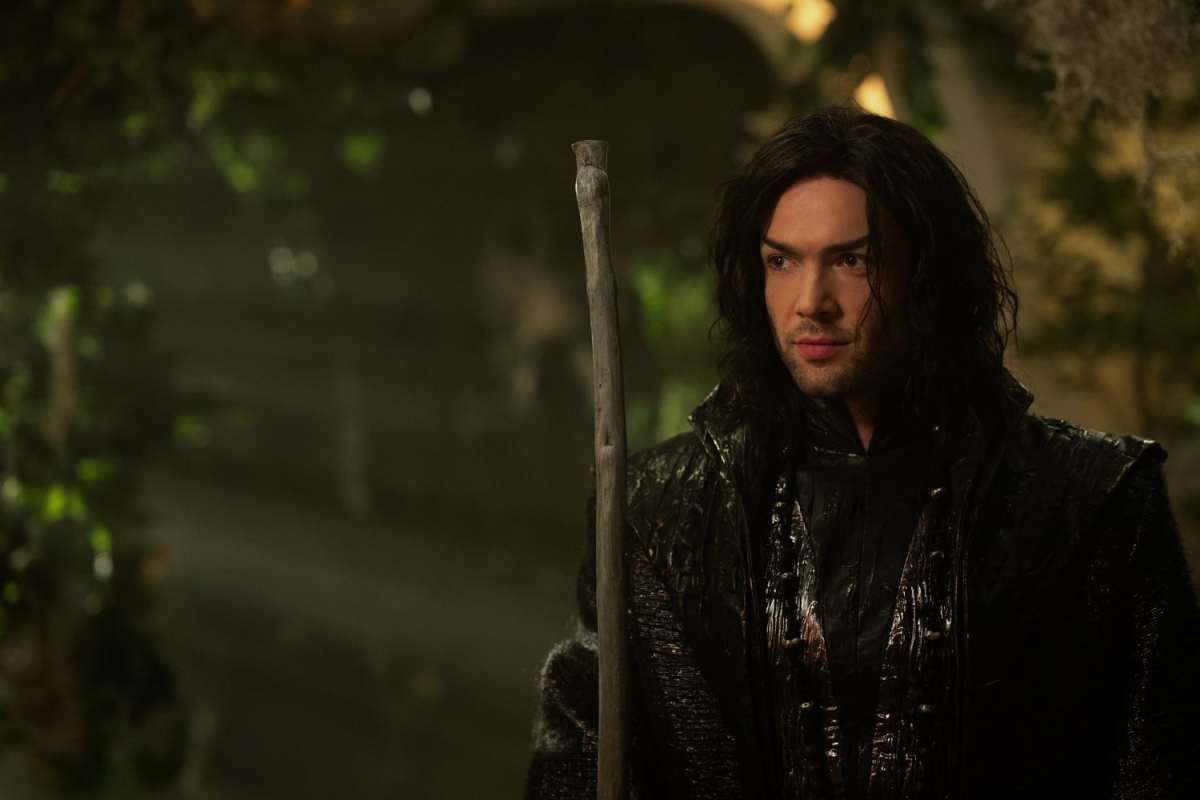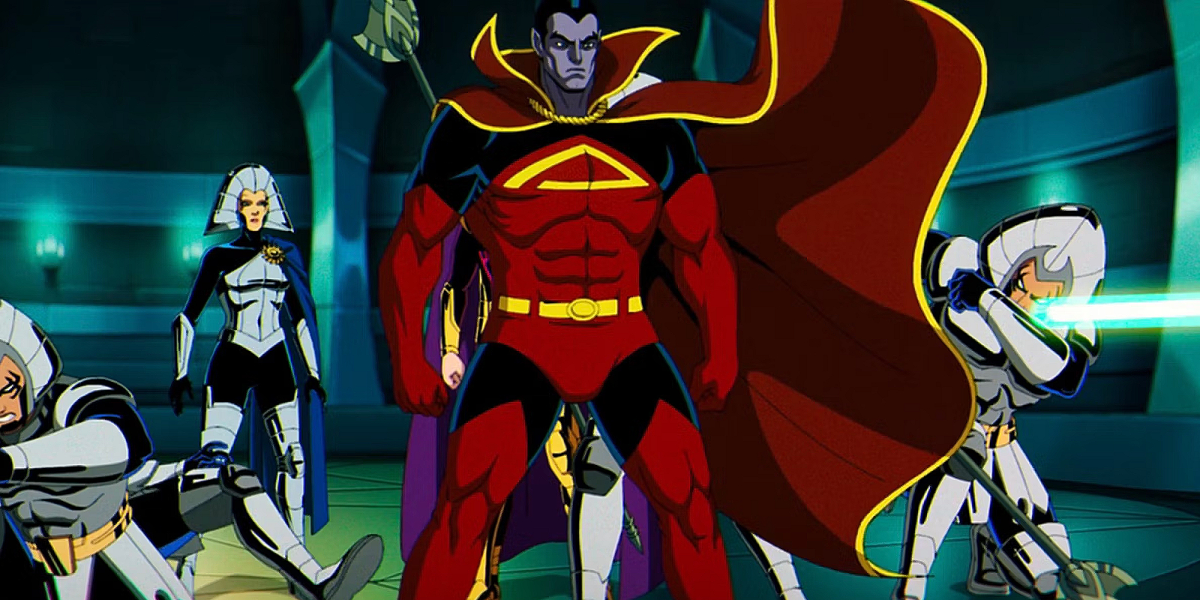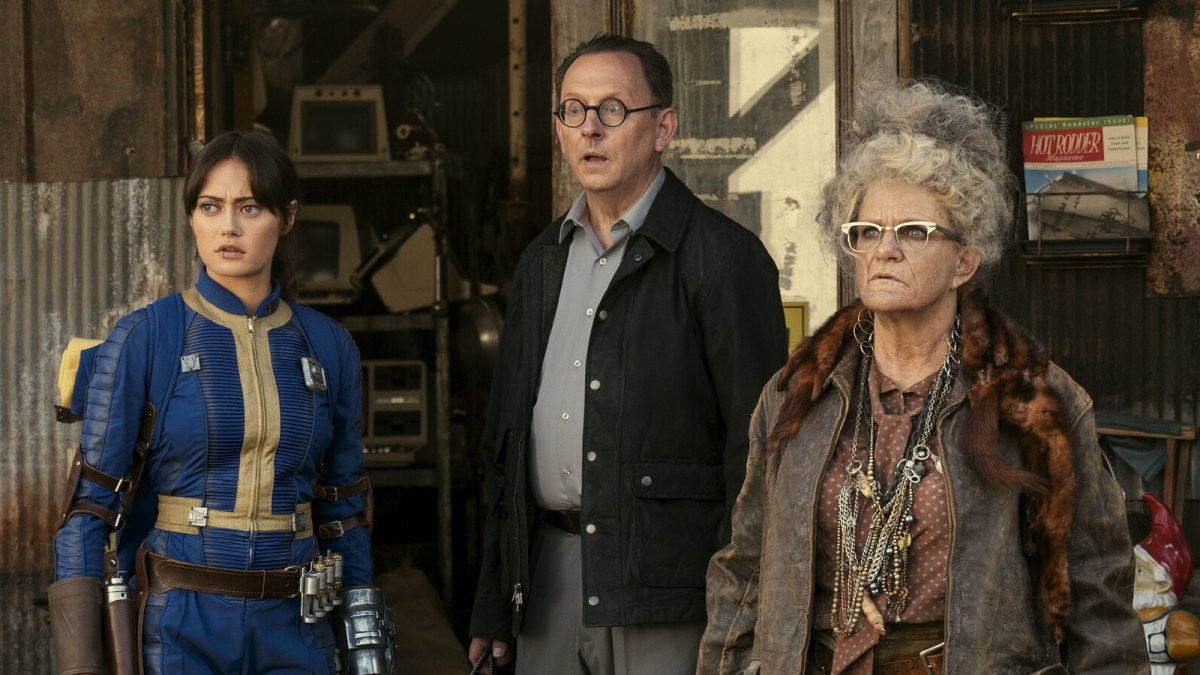This discussion and review contains spoilers for Star Trek: Strange New Worlds episode 8, “The Elysian Kingdom.”
“The Elysian Kingdom” is a very odd piece of television. Given how conventional and formulaic the first season of Strange New Worlds has been to this point, that is a compliment.
“The Elysian Kingdom” is just as rooted in franchise tropes and conventions as the previous seven episodes. However, it does draw from a more interesting and eccentric tradition within Star Trek, using the franchise’s science fiction setting to tell a more overtly fantastical story. It recalls classic adventures like “The Squire of Gothos” or “Catspaw,” along with weirder episodes like “Sub Rosa” or even “Exile.”
With the characters finding themselves trapped within a fantastical narrative that an alien consciousness has mistaken for reality, it suggests “Bride of Chaotica.” With its mystical swords and important life lessons, it echoes “Qpid.” However, the most obvious point of comparison, with the physical transformation of the standing sets into something uncanny as familiar characters play unfamiliar roles, is it evokes “Masks.” These are all very strange and very unique episodes.
As odd as “The Elysian Kingdom” is, the episode clearly serves a number of important functions for the production team. As with “Memento Mori,” this is certainly a budget-saving bottle episode, in that it allows the show to use its existing cast and standing sets in interesting ways, presumably sourcing the costumes and set dressing from the studio’s storage. As far as the production necessity to save costs goes, this is a much more inventive and playful way to make a bottle episode.
More than that, “The Elysian Kingdom” also recalls “Ghosts of Illyria” from earlier in the season, in the sense that it is an episode that is designed to push the primary cast out of its comfort zone by giving them more to play. The cast is often asked to play against type and openly invited to ham it up. For example, Christina Chong gets to comically showcase her vocal range, acknowledging that the actor’s dream “was always to do musical theater.”
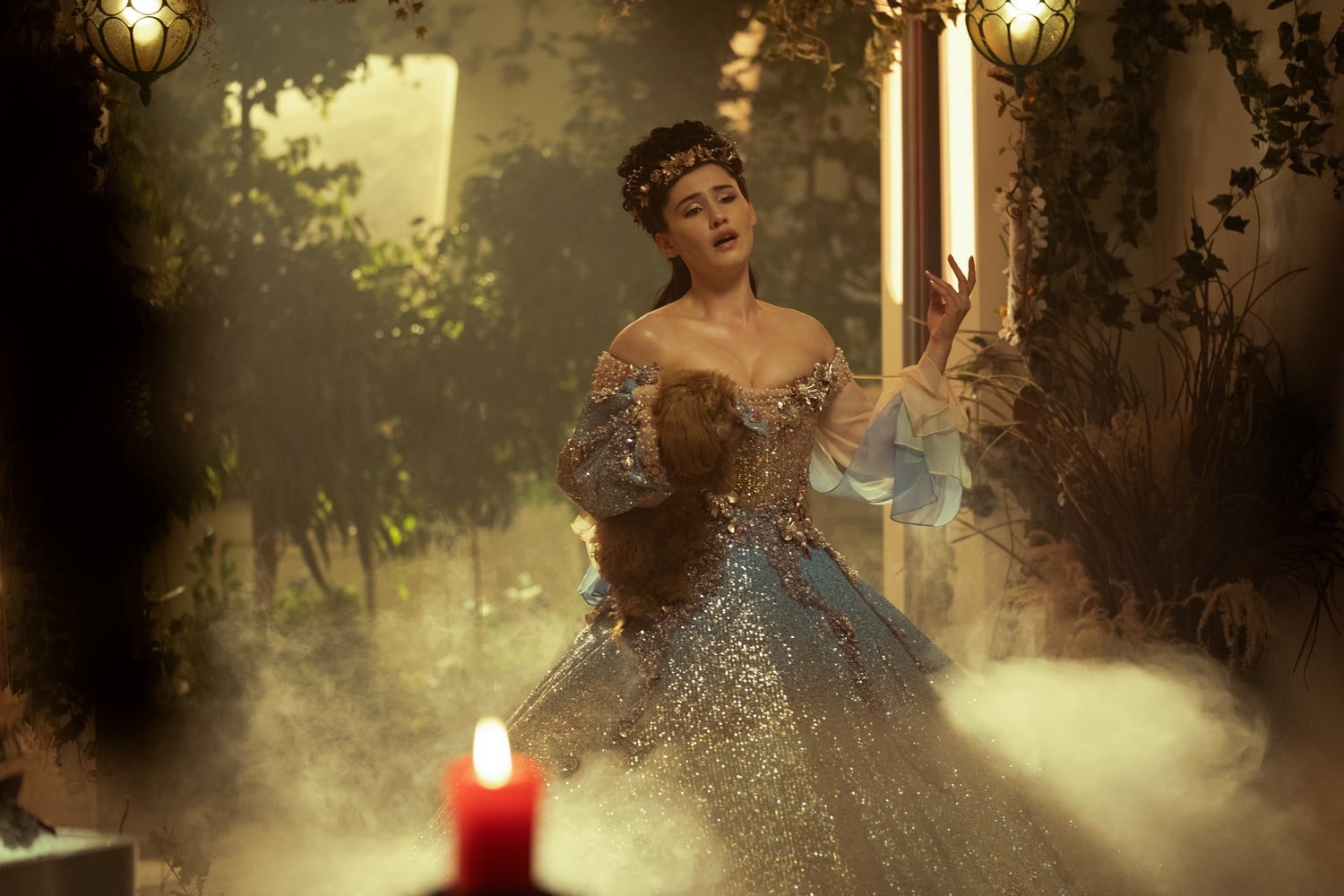
As with episodes like “The Naked Now” or “Singularity,” these sorts of exercises can help guide the production team’s understanding of the cast by recognizing strengths that may not have been showcased in writing to the characters. For example, on Deep Space Nine, it’s clear that “Dramatis Personae” taught the writing staff that lead actor Avery Brooks could be swashbuckling and that Nana Visitor could be sexual, elements not really reflected in their characters to that point.
This is also the biggest problem with “The Elysian Kingdom.” The episode feels too much like an acting exercise, an excuse to watch the cast goof around with one another. There’s little character work here for the ensemble. Why is Spock (Ethan Peck) a wizard? Why is Uhura (Celia Rose Gooding) an evil queen? Why is Ortegas (Melissa Navia) a kill-happy soldier? Why is Pike (Anson Mount) a sniveling official? Why is Noonien-Singh (Chong) a princess?
It might be possible to infer some connections there, at a push. Maybe turning Spock into a wizard represents some primal rejection of logic. Maybe making Noonien-Singh a princess is acknowledging her family’s lineage as conquerors and despots. However, the episode never seems to put any real thought into it, and it feels like a glaring omission. It’s a problem that prevents the episode from transcending “fun” and “interesting” to become “legitimately compelling.”
In some senses, “The Elysian Kingdom” illustrates a pronounced problem with the episodic approach of Strange New Worlds. The show has been praised for its “filler” episodes, but fans seem to be responding more to the return of standalone stories. However, with only 10 episodes in the season — and with some credited leads not appearing in every episode — it is worth noting that both “Ghosts of Illyria” and “The Elysian Kingdom” have most of the cast acting “out of character.”
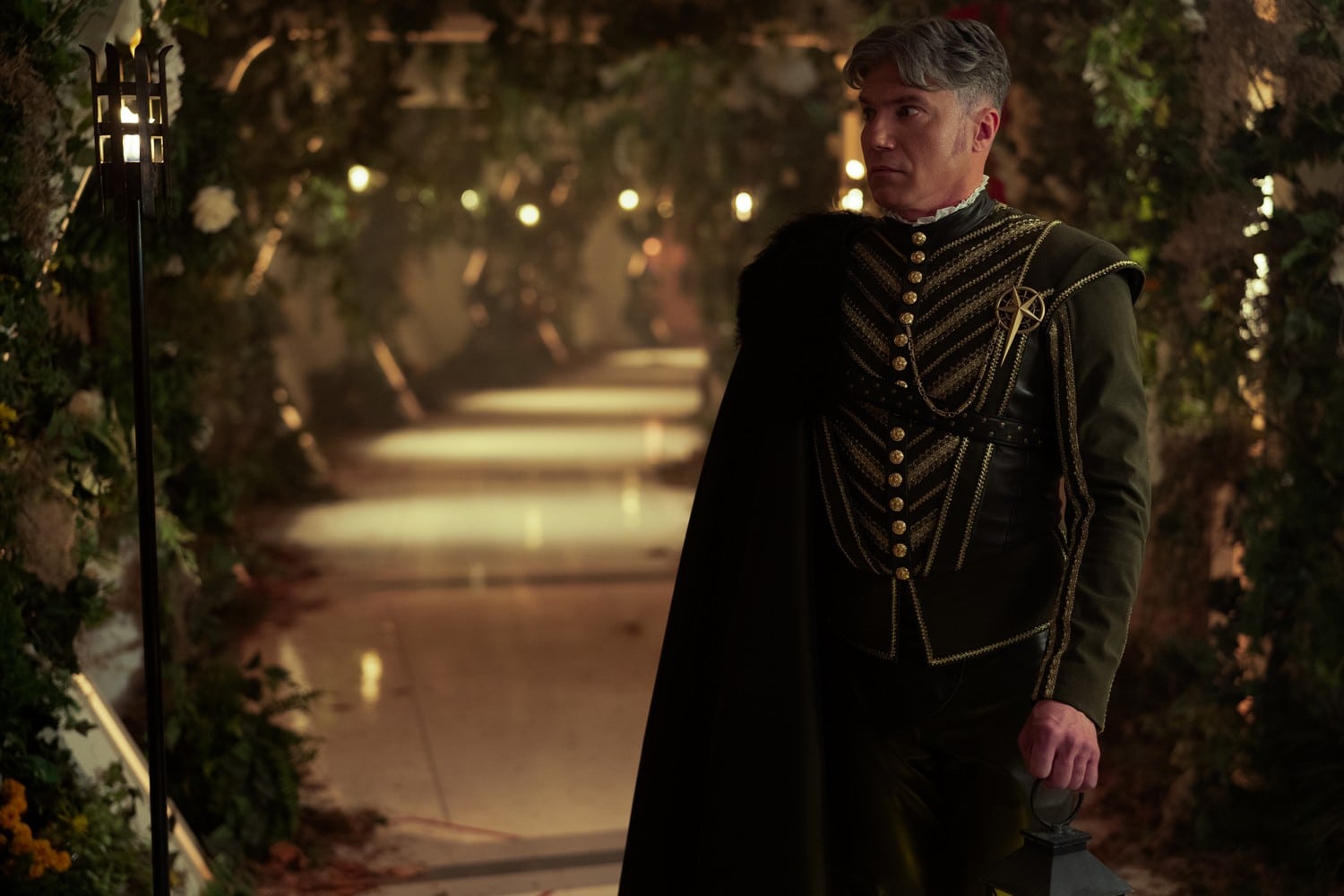
After all, “The Elysian Kingdom” is the first episode of the season to meaningfully focus on the character of M’Benga (Babs Olusanmokun). In a 20-odd-episode season, the show could churn out at least two episodes for each of the credited leads, but the cast has to fight for space within a rigidly episodic season half that length. It is a shame that it has taken the show so long to focus on M’Benga, as Olusanmokun has already proven himself one of the ensemble’s strongest performers.
“The Elysian Kingdom” works better as a character study for M’Benga than it does as a playful fantasy runaround. It is held together by a strong thematic and emotional core. “The Elysian Kingdom” is a story about a father learning that he needs to let go of his daughter, that her story must be her own and that he cannot control or dictate it forever. It is a touching theme, and Olusanmokun provides solid emotional grounding for that arc.
Reflecting on the ending of the eponymous fairytale, M’Benga understands why he has been cast in the role of the story’s protagonist. Speaking of a magical relic, he explains, “He has to let it go, even though it means that he won’t be happy anymore.” So this fantasy about a king becomes a story about a father learning to release his daughter. He has to say goodbye to Rukiya (Sage Arrindell), allowing her to live her own life.
This is an interesting development, particularly given that Rukiya was only introduced five episodes earlier in “Ghosts of Illyria,” and the prospect of curing her was a significant subplot in “Lift Us Where Suffering Cannot Reach.” This feels like a sharp left turn for the character arc between M’Benga and Rukiya. If the entire season hadn’t been written and shot before it was released, it would feel like a hasty plot correction, a decision to write Rukiya out as quickly as possible.
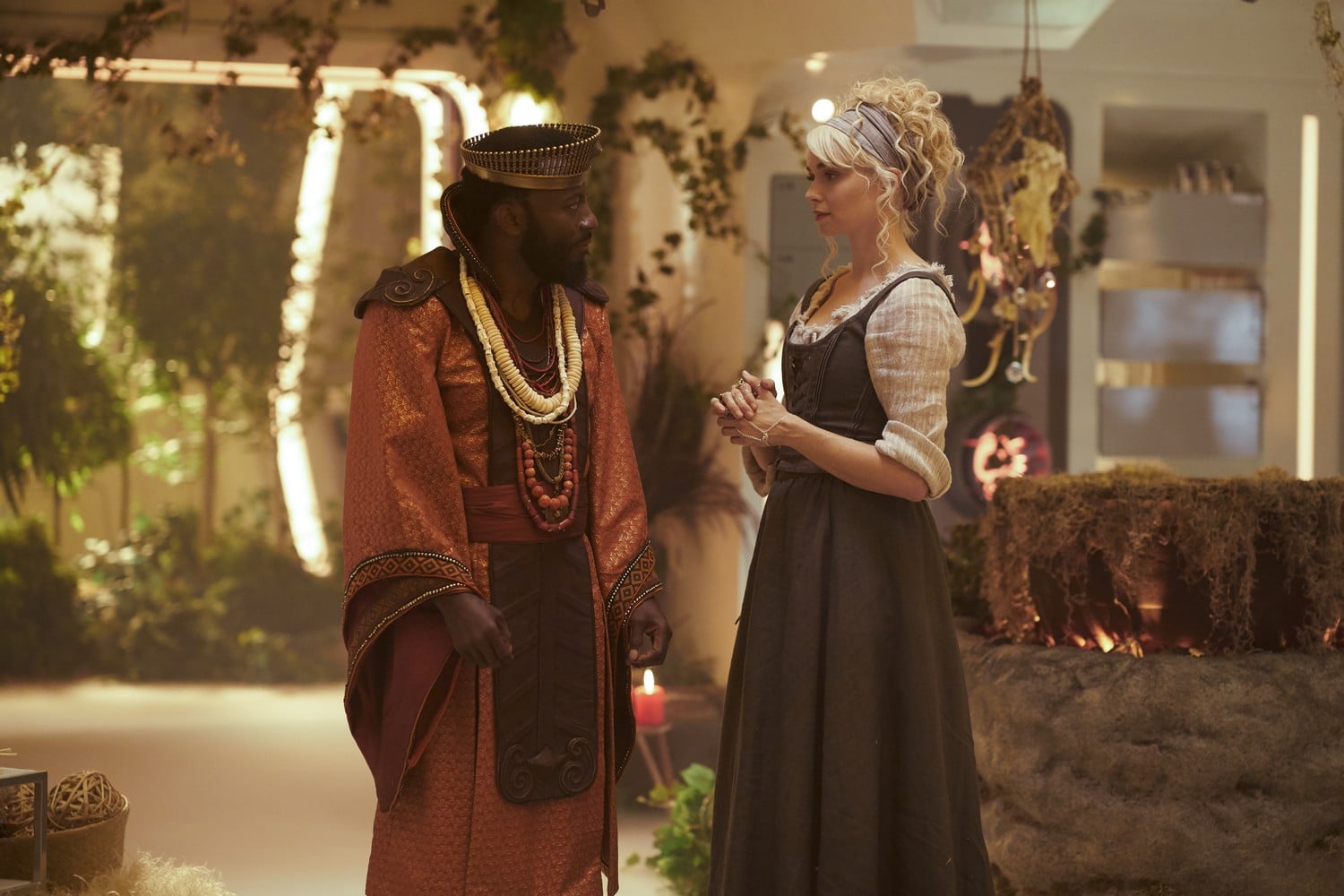
It seems possible that this choice was dictated by production realities, with the writers suddenly realizing that a multi-year story in which a child is frozen in a transporter buffer would brush up against the fact that Arrindell would inevitably grow between seasons. In hindsight, this is an arc that could only ever have lasted a single season or so, which invites the question of why the production team chose to build such an arc into the show in the first place.
It’s odd to see Strange New Worlds jettisoning a central character arc so quickly and in such an unusual way, particularly when Star Trek shows tend to hold on to such dead weight for extended periods. Voyager took multiple seasons to resolve loose plot threads, such as Janeway’s (Kate Mulgrew) extremely long-distance relationship with boyfriend Mark (Stan Ivar). It also never even bothered to address Kim’s (Garrett Wang) waiting-at-home girlfriend Libby (Jennifer Gatti).
It is to the credit of Olusanmokun, along with writers Akela Cooper and Onitra Johnson, that this kinda works. After all, this is a plot in which a father seemingly hands his daughter over to what could only be described as a sentient nebula. It’s basically the plot of Alex Proyas’ career-derailing Knowing. However, the script is smart enough to have Rukiya return as an older woman, played by Makambe Simamba, to affirm her father’s choice. “I’m happy, I’m safe. You did the right thing.”
While “Lift Us Where Suffering Cannot Reach” and “The Serene Squall” were episodes that suffered from a lack of specificity in their central metaphors, undermining their own points, “The Elysian Kingdom” works precisely because it is so general. The episode is so weird and its concepts so abstract that it can only really be understood as a metaphor for the importance of parents allowing their children to live their own lives.
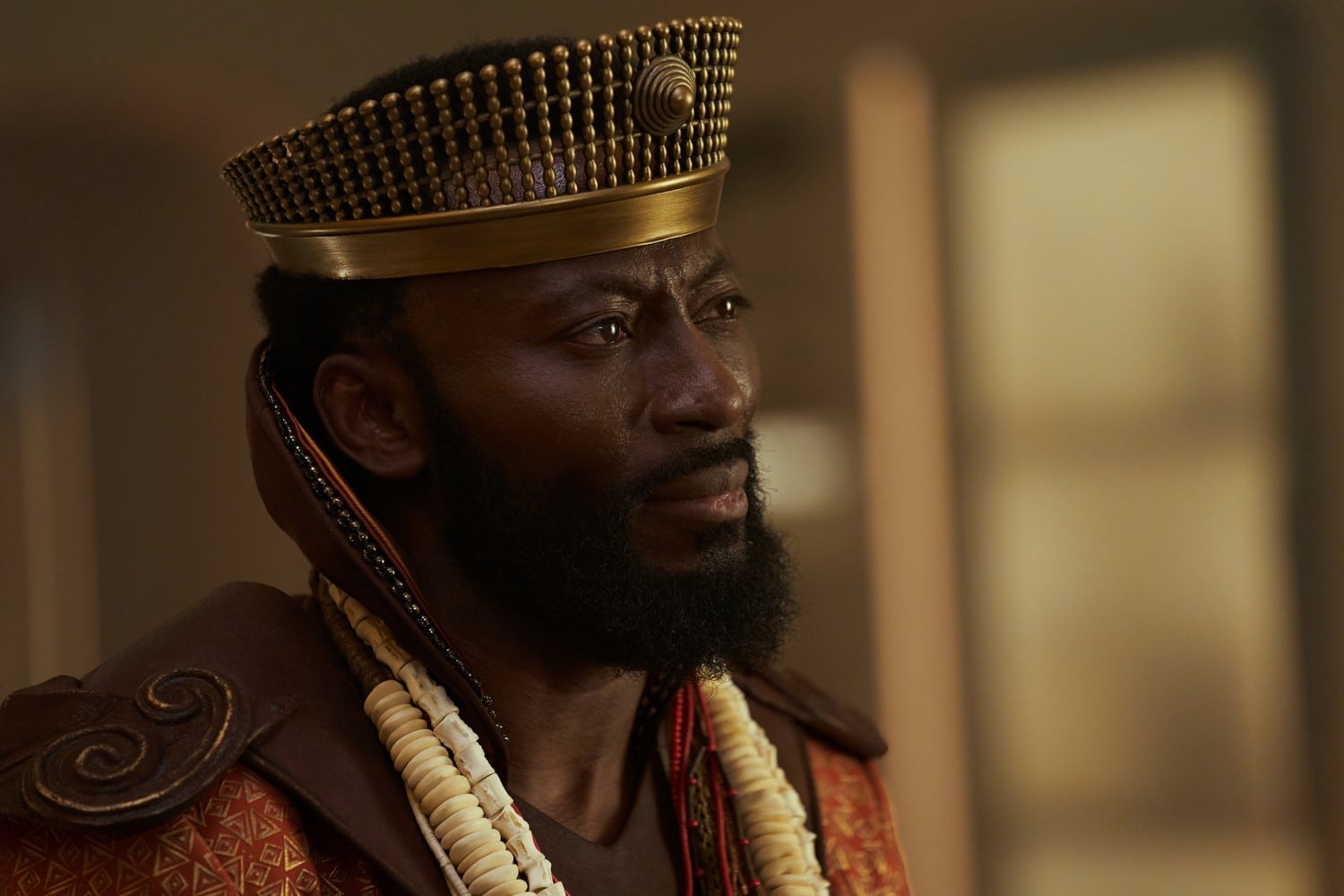
That said, the episode also works as a meditation on the importance of letting the next generation have their own stories, as well as the freedom to rewrite the stories that they inherited from their parents. M’Benga has read the eponymous story to his daughter countless times and so knows it inside out. “This is not how the story goes,” he complains when two characters start talking about their relationship. “The two of you never actually meet in the book.”
In some ways, “The Elysian Kingdom” reads as a metaphor for fan fiction and transformative works, of the importance of allowing younger generations to reclaim and rework these narratives. M’Benga discovers that he isn’t the driving force of this story — Rukiya is. “She has always hated how the story ended,” he confesses. The implication is obvious: She is writing her own story. True to the spirit of fan fiction, two characters who never even met in the original text are now lovers.
Much of the first season of Strange New Worlds has been engaged with what it means for the show to be a prequel, to be beholden to what came before and to be confined by what fans already know of the Star Trek universe. A lot of this, as in “Strange New Worlds” and “Children of the Comet,” has been a grimly fatalistic argument about accepting inevitability. “The Elysian Kingdom” is a compelling counterargument, contending that one need not be trapped and defined by what came before.
There’s something reassuring in this. The worst parts of Strange New Worlds have been those thoughtlessly emulating older Star Trek shows without insight or consideration. The best parts of the show have been those approaching familiar elements with a new perspective, such as fleshing out T’Pring (Gia Sandhu) into a more fully formed character or exploring the Federation’s weird prejudice against transhumanism. “The Elysian Kingdom” suggests that stories can be rewritten.
It might be too much to hope that Strange New Worlds has turned a new page, but “The Elysian Kingdom” offers some small hope that it can find some new stories to tell in this old framework.

